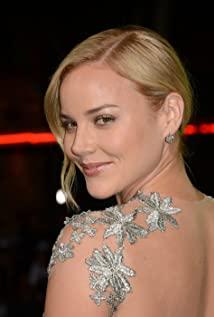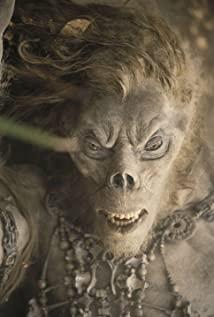Zach Snyder is a controversial figure, the recent high-profile new film "Justice League" has received mixed praise (although it was replaced by Joss Whedon in the later period), and the last film "Suicide Squad" produced by the director is also not satisfactory. , but his previous "Spartan 300 Warriors", "Watchmen", etc. are still classics... So what kind of director is he? Maybe through a film, we can get a glimpse.
This is also a controversial film. After its release, many people thought it was a big bad film, but it was regarded as a masterpiece by some people. This is "Pretty Girl" in 2011.
The official poster of "
Pretty Girl" says it's bad because the plot is unintelligible, and it is meaningless to forcibly embed beauties, special effects and battle scenes into the plot of "One Flew Over the Cuckoo's Nest"; I think it has deep meaning.
It is true that from the point of view of the plot direction, the male protagonist in "Flying Over the Cuckoo's Nest" is just replaced by a female, but the two are fundamentally different. "One Flew Over the Cuckoo's Nest" used the actions of the lunatics to insinuate the American society at that time; while "Pretty Girl" is about Freudian psychology under the skin of "One Flew Over the Cuckoo's Nest".
If we compare it to a movie, it's more like "Inception" than "Pretty Little Girl" like "One Flew Over the Cuckoo's Nest": it's all about people's deep consciousness.
It's just that "Inception" is more straightforward: human consciousness is divided into four layers, the deepest layer is the edge of the subconscious; and "Pretty Girl Special Attack" integrates these four layers of consciousness into the plot, and adds the fifth layer: It is similar to "liberation" at the religious level. Zack Snyder was not the first to use this technique, the first to do so was a master far greater than both Zack Snyder and Freud: Andersen, who expressed this One point of view's work is also well known: "The Little Match Girl".
Before explaining the film, it is necessary for us to understand what Freud called "deep consciousness".
Freud's "Psychoanalysis of Personality" believes that human consciousness is divided into three layers: id (id), ego and superego.
The level of consciousness
"it" is transliterated from the Latin "id", which means id; this word happens to be the same as the beginning of "identity". Freud was referring to the deep-seated instincts in people, such as "fantasizing about bread when you're hungry."
The ego is the connection between a person's "ite" and the outside world. It uses the motivation (or "reason" to be more precise) provided by a person to obtain external resources, and rationally distinguishes whether this resource is real or imagined. , in order to keep people alive.
The superego is a person's social personality, forcing people to follow social morals, pursue social ideals and realize social values.
And then deeper, is the human subconscious.
It can be said that the closest thing to the subconscious is Ett.
Freud believed that if a person is too hungry and cannot get food, then he is so engrossed in food fantasies that he cannot wake up.
Does this bridge look familiar? Yes, the "Little Match Girl" mentioned above expresses such a point of view.
In "Inception", Dom Cobb, the dreammaker played by Xiao Lizi, fell into the edge of the boundless subconscious with his wife, where they can satisfy all their imaginations, but they just can't wake up.
"Inception" stills
So, what does this have to do with "Pretty Girl"?
Look at the plot of "Pretty Girl": The tragic life of the heroine "Doll" played by Emily Browning: she was sexually assaulted by her stepfather with her younger sister when she was a child, and she witnessed her stepfather kill her mother for property. . In the mother's will, it was found that the mother had left all the property to the two daughters. The stepfather became angry and shot and killed the sister first, and then wanted to attack her. The panicked "doll" snatched her stepfather's pistol, but did not do it because she was weak. When confronted by the police, the cunning stepfather framed her as being driven mad by her mother's death, killed her sister, and wanted to attack him.
So her stepfather sent her to a lunatic asylum, and bribed the nurse to ask a doctor to perform "frontal lobe removal surgery" on her, making her an unconscious cripple...
Stills from "Pretty Girl": "Doll" is ready to undergo frontal lobe removal surgery. It is
reasonable to say that the plot ends here, but it expresses the darkness of society in a more alternative way... However, is it really that simple?
"Pretty Girl Attack" has at least four plots. In addition to the superficial plots mentioned above, there are also the following three
plots : the dancing girl plot, the fantasy plot, and the "sweet pea" plot.
In "The Dancing Girl", "The Doll" becomes a poor girl who is sold to a nightclub by her adoptive father. The girl is still a virgin. She is training to dance in a nightclub. The boss accidentally discovers that she has enough dance moves to fascinate any man. In order to ensure her own purity, "Doll" plans to escape from the nightclub before the arrival of the "rich man", and makes a plan with the sisters in need.
In "Fantasy Story," "Doll" imagines her escape from a nightclub as a fantasy war, where she and her sisters fight against giant samurai, zombie Germans, fire-breathing dragons, and bombs big enough to blow up cities.
The three-layered plot of the stills of " Pretty Girl Special Attack" is mainly expressed in the film, which is easy for the audience to see.
In addition, there is another hidden plot: the "Sweet Peas" plot.
On the surface, "Sweet Pea" is another character. In the main plot, she is a patient in a lunatic asylum; in "Dancing Girl Plot", she is a mature and prudent elder sister who persuades everyone to act rationally; in "Fantasy Plot", She is a sane warrior. However, at the end of the film, the "Doll" who was supposed to be the protagonist sacrificed himself, let "Sweet Pea" escape, and said the following lines: You have to live for us, and go alone to hold down the thugs in the nightclub, "Sweet Pea" got on the bus heading for the distance...
If you compare "Inception", "Sweet Pea" is the deepest fantasy in "Edge of the Subconscious".
In "Inception", it is said that at the edge of the subconscious, all human desires can be satisfied, time and space are endless, but it will make people fall into a kind of "unreal" fear. "Unreal" fear, choose to end this "unreal" by "suicide" (the suicide method involves another classic film "Trainspotting", which is limited by the theme and space, and will not be listed here for the time being. Details with friends); but Cobb's wife didn't escape from "unreality" and ended up committing suicide in the real world. And his client, Japanese wealthy businessman Saito built a wealthy business empire when he fell into the edge of the subconscious, but finally chose to return to the real world with Cobb.
Cobb pulled Saito back from the edge of the subconscious.
"Inception" finally left the audience with a suspense: Is Cobb returning to the real world, or is it another fantasy of the "edge of the subconscious"? Of course, through the analysis of clues given by the camera, it is a comedic ending, and Cobb really returns to the real world. "Pretty Girl" is just the opposite, because the fate of the girl's frontal lobe cannot be changed, and she can only choose to stay in the fantasy world as a "sweet pea".
Why is "Sweet Pea" a fictional character? In fact, not only Sweet Pea, the other girls in the film, Rocket, Amber, and Blonde are also characters imagined by the protagonist.
The clues in the film are obvious. The real characters appear one after another at the end of the film: "The Rich" is the doctor who performed the frontal lobe removal operation on the heroine, "Mama Sang" is the attending physician of the madhouse, "The Mayor" "The janitor in the madhouse, the "chef" is the chef in the madhouse, the "nightclub owner" is the foreman in the madhouse, the bodyguard in the nightclub, the dancer is the nurse in the madhouse, and the nurse... But none of this group of people is It's the four girls "Sweet Pea", "Rocket", "Amber" and "Blonde".
Rocket, Blonde, Sweet Pea
Let's start with the name: "Sweet Pea" comes from Andersen's other classic fairy tale: "The Princess and the Pea", the prince wants to marry the princess, and the girl who ends up being ugly because of twelve layers of velvet cushions There's a pea underneath that has passed the princess test and is considered a real princess.
So "pea" became synonymous with "princess". Every girl (even a woman) has a little princess deep inside and fantasizes about being like a "Princess Pea" with skin so delicate that a pea under twelve layers of velvet can feel it.
Having said that, we have to mention another concept of Freud: libido.
"Libido" means sexual power, where "sex" refers to sex in a broad sense, not only referring to reproductive sexual life, but also to the pleasure of all bodily organs, including sexual inversions and children's sexual life.
Freud divided the development of libido into five stages: oral, anal, genital, latent and reproductive.
The concept of these five periods is briefly explained below:
Oral period: from birth to 1.5 years old, it is the most primitive stage of individual psychological development, and its primitive sexual power is concentrated in the mouth; relying on sucking, chewing, swallowing, biting Waiting for oral activities to obtain pleasure and satisfaction.
Anal stage: about 1.5 to 3 years old, the arousal zone is in the anus. At this stage, young children are particularly interested in the activities of the anus, and are therefore satisfied, because of the pleasure experience obtained by releasing the internal pressure during feces excretion.
Genital stage: about 3 to 5 years old, some people are divided into 3 to 6 years old, the erogenous zone is the external genitalia. When children are 3 to 5 years old, they realize the anatomical differences between the two sexes and their own gender, and libido concentrates on the genitals, and the sexual organs become an important stimulus for children to obtain sexual satisfaction. Likes stroking and revealing genitals and fantasies.
Incubation period: about 6 to 12 years old, during which sexuality is suppressed. This is due to the development of the psychological forces of morality, beauty, shame, and fear of being disliked by others, which are opposed to the undisguised sexual impulses of childhood. Half of this development is due to the demands of family upbringing and society, and the other half to physical development. During this period, the sexual impulse is temporarily stopped, and children stop their interest in the opposite sex, and tend to associate with people of the same sex. The biggest feature of this period is the lack of interest in sex, and the boundaries between boys and girls are very clear. But the sexual impulse did not disappear, but turned to some activities necessary for social life in the future - study, sports, singing and dancing, art, games, etc.
Reproductive period: Adolescence to adulthood, also sexual maturity, characterized by the predominance of heterosexual tendencies.
The fantasy of "Princess Pea" stems from the libidinal development of the "oral period".
Chinese audiences are actually deceived by the evil title. The English title of "Pretty Girl" is called "Sucker Punch", and the literal translation is "mouth blaster"... This kind of translation cannot pass the domestic screening review.
In fact, Zack Snyder did a "title party" here. The title of the film does not mean so dirty, but refers to the "oral period".
Due to space limitations, I can only tell you here today. Next time, we will explain the relationship between "oral period" and "Princess Pea" in detail. Please continue to pay attention.
View more about Sucker Punch reviews











